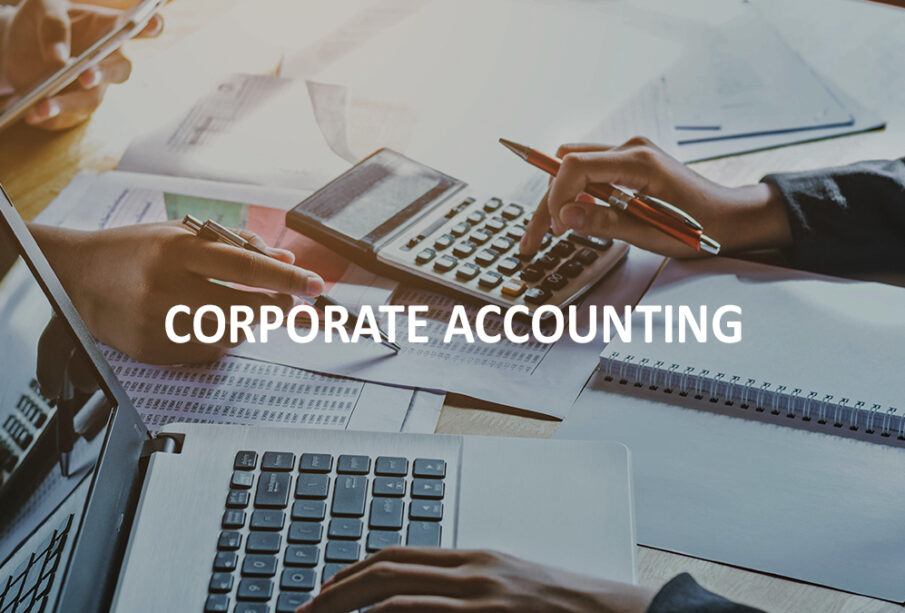Ledger Revolution: How Blockchain is Redefining Corporate Accounting in the Digital Age

Introduction: A Paradigm Shift in Financial Integrity
In the annals of corporate history, few technologies have promised such profound transformation as blockchain. Initially hailed as the foundation of cryptocurrencies, blockchain has swiftly evolved beyond its fintech roots. Today, it stands poised to redefine corporate accounting, reshaping how organizations record, verify, and share financial data. This quiet revolution is not just about automation or efficiency—it’s about transparency, trust, and a new standard of financial accountability.
Corporate accounting, long reliant on centralized systems and post-event reconciliation, is now intersecting with a decentralized digital architecture. This convergence signals a move toward real-time data accuracy, reduced fraud, and tamper-proof recordkeeping. The result is an accounting framework that’s not just more efficient but fundamentally more trustworthy.
Understanding the Blockchain Advantage
At its core, blockchain is a distributed ledger that records transactions in immutable blocks, each cryptographically linked to the previous one. Once data is entered, it cannot be altered without consensus across the network—creating an auditable and incorruptible history of transactions.
What makes blockchain so compelling for corporate accounting?
-
Immutability: Once a transaction is recorded, it cannot be retroactively changed, ensuring accuracy and trust.
-
Transparency: All authorized participants can view the same version of the ledger in real time.
-
Decentralization: There’s no single point of failure or control, reducing the risks of data manipulation.
-
Automation via Smart Contracts: Agreements encoded into blockchain that self-execute when conditions are met, reducing reliance on manual intervention.
Key Areas of Transformation in Corporate Accounting
1. Real-Time Transaction Recording
Traditional accounting often involves batch processing and end-of-period reconciliations. With blockchain, transactions can be logged and verified instantly, offering real-time visibility into a company’s financial health.
-
No delays in data consolidation across departments or subsidiaries
-
Reduced need for periodic audits, as ledgers are continuously self-auditing
-
Easier multi-party reconciliations for intercompany transactions
2. Enhanced Audit Trails
One of blockchain’s most powerful features is its permanent, time-stamped audit trail. Every transaction is recorded sequentially, with a complete history accessible for compliance checks and financial reviews.
-
Auditors can verify transactions directly from the blockchain ledger
-
Minimizes the need for paper documentation and reconciliatory proof
-
Reduces the likelihood of human error or fraudulent adjustments
3. Fraud Reduction and Internal Controls
Fraudulent financial activity often hinges on manipulating records after the fact. Blockchain’s design makes such tampering virtually impossible without leaving a trace.
-
Built-in security ensures traceability of all entries
-
Smart contracts enforce internal controls automatically
-
Enhances Sarbanes-Oxley compliance through stronger data governance
4. Streamlined Compliance and Regulatory Reporting
Meeting the demands of tax authorities, regulators, and investors can be resource-intensive. Blockchain simplifies compliance by ensuring accuracy, consistency, and traceability in financial reporting.
-
Reduces time and cost of regulatory filings
-
Facilitates real-time audits by external agencies
-
Aligns global entities with consistent accounting standards through a unified ledger
5. Inventory and Asset Management Integration
Blockchain’s application in supply chains enhances how physical and digital assets are tracked and accounted for.
-
Automatic updates to asset registers as goods move through supply chains
-
Real-time inventory valuation and depreciation tracking
-
Integration with Internet of Things (IoT) devices for automated reporting
The Rise of Triple-Entry Accounting
One of the most exciting developments in this landscape is the concept of triple-entry accounting, enabled by blockchain. In this model:
-
Each party to a transaction records it in their ledger (double-entry)
-
A third, immutable entry is made on the blockchain ledger, jointly verified
This third entry ensures that the transaction is both recorded and validated in a shared space, significantly reducing disputes, errors, and audit risks. It offers an unprecedented level of transactional integrity between businesses, customers, and regulators.
Early Adopters and Practical Applications
Several forward-thinking enterprises are already embracing blockchain in their financial operations:
-
PwC and Deloitte have developed blockchain audit solutions to enhance verification processes
-
IBM and Maersk use blockchain for real-time logistics accounting and cost reconciliation
-
Walmart applies blockchain to track supply chain data and integrate it with procurement accounting
These pioneers are not only improving efficiency—they’re setting a precedent for a more agile and transparent financial infrastructure.
Challenges and Considerations
Despite its promise, the path to blockchain integration in accounting isn’t without hurdles:
-
Technological Maturity: Blockchain solutions must scale securely and integrate with legacy ERP systems
-
Regulatory Ambiguity: Different jurisdictions treat blockchain records and smart contracts with varying levels of legal recognition
-
Talent Gap: Accountants must upskill to understand blockchain principles and apply them effectively
-
Cost of Implementation: Initial setup, training, and change management can be significant, especially for large enterprises
Nonetheless, these challenges are diminishing as technology matures, regulations evolve, and more professionals enter the blockchain space with domain expertise.
The Human Element in a Decentralized System
It’s important to recognize that blockchain is a tool—not a replacement for human judgment. The most effective use of blockchain in accounting combines its technical strengths with the ethical standards, critical thinking, and strategic oversight of skilled financial professionals.
Far from rendering accountants obsolete, blockchain elevates their role from data entry to data interpretation. It enables accountants to spend less time reconciling and more time analyzing, advising, and contributing to strategy.
Conclusion: A Transparent Future Beckons
Blockchain is not merely a new software feature—it’s a structural shift in how financial data is recorded, validated, and trusted. As corporations seek greater resilience, compliance, and operational clarity, blockchain offers an accounting architecture that meets the demands of a fast-moving digital world.
While full adoption may take years, the direction is clear: blockchain is no longer a fringe innovation, but a foundational pillar of the next generation of corporate accounting. Forward-looking firms that embrace it today will not only reduce risk but build reputations for trustworthiness and innovation in tomorrow’s economy.














